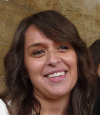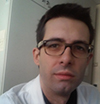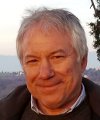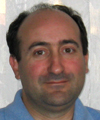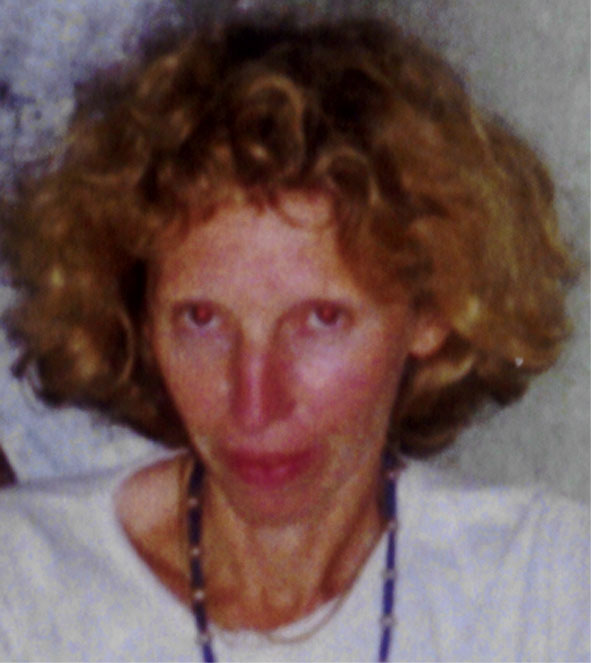Studying at the University of Verona
Here you can find information on the organisational aspects of the Programme, lecture timetables, learning activities and useful contact details for your time at the University, from enrolment to graduation.
Academic calendar
The academic calendar shows the deadlines and scheduled events that are relevant to students, teaching and technical-administrative staff of the University. Public holidays and University closures are also indicated. The academic year normally begins on 1 October each year and ends on 30 September of the following year.
Course calendar
The Academic Calendar sets out the degree programme lecture and exam timetables, as well as the relevant university closure dates..
| Period | From | To |
|---|---|---|
| I semestre | Oct 4, 2010 | Jan 31, 2011 |
| II semestre | Mar 1, 2011 | Jun 15, 2011 |
| Session | From | To |
|---|---|---|
| Sessione straordinaria | Feb 1, 2011 | Feb 28, 2011 |
| Sessione estiva | Jun 16, 2011 | Jul 29, 2011 |
| Sessione autunnale | Sep 1, 2011 | Sep 30, 2011 |
| Session | From | To |
|---|---|---|
| Sessione autunnale | Oct 13, 2010 | Oct 13, 2010 |
| Sessione straordinaria | Dec 16, 2010 | Dec 16, 2010 |
| Sessione invernale | Mar 16, 2011 | Mar 16, 2011 |
| Sessione estiva | Jul 20, 2011 | Jul 20, 2011 |
| Period | From | To |
|---|---|---|
| All Saints | Nov 1, 2010 | Nov 1, 2010 |
| National holiday | Dec 8, 2010 | Dec 8, 2010 |
| Christmas holidays | Dec 22, 2010 | Jan 6, 2011 |
| Easter holidays | Apr 22, 2011 | Apr 26, 2011 |
| National holiday | Apr 25, 2011 | Apr 25, 2011 |
| Labour Day | May 1, 2011 | May 1, 2011 |
| Local holiday | May 21, 2011 | May 21, 2011 |
| National holiday | Jun 2, 2011 | Jun 2, 2011 |
| Summer holidays | Aug 8, 2011 | Aug 15, 2011 |
Exam calendar
Exam dates and rounds are managed by the relevant Science and Engineering Teaching and Student Services Unit.
To view all the exam sessions available, please use the Exam dashboard on ESSE3.
If you forgot your login details or have problems logging in, please contact the relevant IT HelpDesk, or check the login details recovery web page.
Should you have any doubts or questions, please check the Enrollment FAQs
Academic staff
Cecchi Franco
 franco.cecchi@univr.it
franco.cecchi@univr.it
 045 802 7964 - 7965
045 802 7964 - 7965
Gnaccarini Claudio
 claudio.gnaccarini@univr.it
claudio.gnaccarini@univr.it
 bruno.gobbi@univr.it
bruno.gobbi@univr.it
Marastoni Corrado
 maraston@math.unipd.it
maraston@math.unipd.it
Mazzi Ulderico
 ulderico.mazzi@univr.it
ulderico.mazzi@univr.it
Minelli Ida Germana
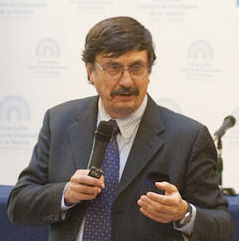
Monaco Ugo Luigi
 hugo.monaco@univr.it
hugo.monaco@univr.it
 045 802 7903; Lab: 045 802 7907 - 045 802 7082
045 802 7903; Lab: 045 802 7907 - 045 802 7082
Nodari Luca
 045 802 7943
045 802 7943
Spena Angelo
 angelo.spena@univr.it
angelo.spena@univr.it
 045 683 5623
045 683 5623
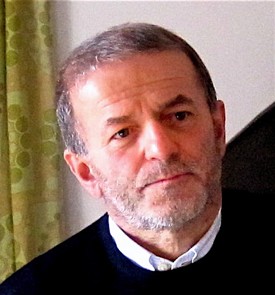
Vallini Giovanni
 giovanni.vallini@univr.it
giovanni.vallini@univr.it
 045 802 7098; studio dottorandi: 045 802 7095
045 802 7098; studio dottorandi: 045 802 7095
Study Plan
The Study Plan includes all modules, teaching and learning activities that each student will need to undertake during their time at the University.
Please select your Study Plan based on your enrollment year.
1° Year
| Modules | Credits | TAF | SSD |
|---|
2° Year activated in the A.Y. 2011/2012
| Modules | Credits | TAF | SSD |
|---|
3° Year activated in the A.Y. 2012/2013
| Modules | Credits | TAF | SSD |
|---|
| Modules | Credits | TAF | SSD |
|---|
| Modules | Credits | TAF | SSD |
|---|
| Modules | Credits | TAF | SSD |
|---|
Legend | Type of training activity (TTA)
TAF (Type of Educational Activity) All courses and activities are classified into different types of educational activities, indicated by a letter.
Cell Biology [Cognomi P-Z] (2010/2011)
The teaching is organized as follows:
BIOLOGIA GENERALE E CELLULARE: II
Credits
6
Period
See the unit page
Academic staff
See the unit page
Learning outcomes
Module: BIOLOGIA GENERALE E CELLULARE: II
-------
Module: BIOLOGIA GENERALE E CELLULARE: I
-------
Module: GENERAL AND CELLULAR BIOLOGY
-------
The course in Cell Biology (I and II) aims to provide the student with the main principles that determine the organization and function of the cell. Basic knowledge about the biology of prokaryotic and eukaryotic cells (animals and plants) will be provided, as well as the structure and function of various cellular compartments, energy metabolism, the processes of cell division and the main techniques used to study of cells. The course will also address the topic of the origin of life on our planet and the evolution of the cell.
Program
Module: BIOLOGIA GENERALE E CELLULARE: II
-------
Module: BIOLOGIA GENERALE E CELLULARE: I
-------
Module: GENERAL AND CELLULAR BIOLOGY
-------
The origin of life on our planet. The origin of the cell. General properties of living organisms, evolution, complexity, cellular organization, nutrition and metabolism, variability, principles of classification, species concept, taxonomic categories.
The unit cell structure and function of living organisms. Prokaryotic and eukaryotic cell. Techniques for the study of cells: optical microscopy, electron microscopy, fixation, inclusion, dyes, autoradiography, immunocytochemistry.
The macromolecules of the cell.
Cell membranes: structure and functions. Extracellular matrix. Cell wall of bacterial cells and plant cells: chemical constituents and properties. The Wall function and relationships between structure and function in various life stages of the cell, synthesis and assembly of wall components.
Features and functions of the endomembrane system: the endoplasmic reticulum, Golgi apparatus, exocytosis, endocytosis, lysosomes. Vacuole: ontogeny, composition of the vacuolar juice; functions of the vacuole.
Glycolysis and fermentation (elements).
Mitochondria: structure and function, respiration and the chemiosmotic theory, role in the process of cell death.
Plastids: structure and function of chloroplasts, chromoplasts, amyloplasts. Stages of photosynthesis (general concepts). Interconversion and differentiation of plastids.
Comparison mitochondrion-chloroplast; endosymbiotic hypothesis.
Peroxisomes.
Cytoskeleton: structure and function of microtubules, microfilaments, intermediate filaments. Centrioles, cilia and flagella. Cell movement and cellular contractility.
Nucleus: structure and function. Nuclear envelope, chromatin organization, euchromatin and heterochromatin, chromosomes, nucleolus.
Ribosomes. Structure and function. General aspects of protein synthesis. Principles of sorting of proteins.
Examination Methods
Module: BIOLOGIA GENERALE E CELLULARE: II
-------
Module: BIOLOGIA GENERALE E CELLULARE: I
-------
Module: GENERAL AND CELLULAR BIOLOGY I and II
The exam will be divided into two parts, one at the end of the first semester and one at the end of the second semester. It will consist of a written test (multiple choice). Only students who pass the test in the first half will have access to the second part of the exam. All the others will have to complete the whole exam (regarding the program of first and second semester) in a single test. It is to the teacher to decide whether oral examination is required.
Type D and Type F activities
Modules not yet included
Career prospects
Module/Programme news
News for students
There you will find information, resources and services useful during your time at the University (Student’s exam record, your study plan on ESSE3, Distance Learning courses, university email account, office forms, administrative procedures, etc.). You can log into MyUnivr with your GIA login details: only in this way will you be able to receive notification of all the notices from your teachers and your secretariat via email and soon also via the Univr app.
Graduation
List of theses and work experience proposals
| theses proposals | Research area |
|---|---|
| Studio delle proprietà di luminescenza di lantanidi in matrici proteiche | Synthetic Chemistry and Materials: Materials synthesis, structure-properties relations, functional and advanced materials, molecular architecture, organic chemistry - Colloid chemistry |
| Multifunctional organic-inorganic hybrid nanomaterials for applications in Biotechnology and Green Chemistry | Synthetic Chemistry and Materials: Materials synthesis, structure-properties relations, functional and advanced materials, molecular architecture, organic chemistry - New materials: oxides, alloys, composite, organic-inorganic hybrid, nanoparticles |
| Dinamiche della metilazione del DNA e loro contributo durante il processo di maturazione della bacca di vite. | Various topics |
| Risposte trascrittomiche a sollecitazioni ambientali in vite | Various topics |
| Studio delle basi genomico-funzionali del processo di embriogenesi somatica in vite | Various topics |
Attendance
As stated in the Teaching Regulations for the A.Y. 2022/2023, attendance is not mandatory. However, professors may require students to attend lectures for a minimum of hours in order to be able to take the module exam, in which case the methods that will be used to check attendance will be explained at the beginning of the module.

